My siblings were among the first Chicanos and Chicanas of the 1960s and 1970s.
They formed and joined the first Chicano clubs in their high schools, put on El Teatro Campesino community plays, along with cousins and friends. They did whatever they could to fight “The Man.” They wore clothes and listened to music and hung in groups that agitated.
What early Chicanos wanted more than to fit in or be popular or be chosen prom king and queen was to stand out. They wanted attention. They wanted respect.
More than that, they had demands that needed to be met or they would go to war. In Los Angeles. In New York City. In Washington D.C. Wherever the battle lay.
My father hated the word “Chicano.” He hated the term “Chicano Power.”
My mother was a childhood friend of César Chavez. My father, also a friend of Chavez, supported the great Grape Strike. My father fought for access to education for all Latinos. He loved his people. And my father thought nothing of standing up to The Man to protect his children, whether it be against principals, teachers or coaches.
But my father felt the term “Chicano” left too little room for Mexican pride. He believed that his generation fought hard for Latino rights and that the Chicano Movement was turning its back on that progress. I still don’t know if he was right. My father served in the military, but was not allowed into eateries that hung signs that read: “No Dogs or Mexicans Allowed.”
My father was 95 when he passed away last Christmas. His generation gave birth to the children who became Chicanos. The first wave of Chicanos.
Those first Chicanos took the ball and ran. They knew the rules had changed. The enemy had learned from my father’s generation and threw up new roadblocks and Jim Crow-type laws. No loitering. No associating with suspicious folks. Eventually, even lowriding was banned in Los Angeles and San Jose and elsewhere in the ‘80s. All were attacks on Latinos, Chicanos, cholos and all people of color living and working in the “wrong” side of town.
When I was born in the mid-1960s, I inherited six siblings. Two of them self-identified as Chicanos. They were the first to do so in my family. I was young, but I remember the clothes. The signs touting “Chicano Power” and “Brown Power.” The emblems of fists and fists raised in the air. The rallies for justice. The marches, walk-outs and sit-ins. I remember the feeling of being protected by the Brown Berets when I attended a rally or march.
Listen to the joint “Chicano Power,” released in 1967 by Thee Midniters of East LA (who purposely spelled their name wrong), to get a feel of the movement that was lit by injustice and fueled by a passion for righting what was wrong.
Listen to “Yo soy Chicano” by Los Alvarados. Listen to “Don’t Put Me Down (If I’m Brown)” by El Chicano. Or anything by Tower of Power and early Carlos Santana. This music is the soundtrack of the Chicano Movement.
Chicanos planted the seeds of the Civil Rights Movement wherever they ventured.
I called myself Chicano when I was very young and then went on to cholo and then Mexican American. Today, I love all of those titles. But, I hold a special place for my Chicano-ness.
Because of my father and my siblings and all of those who fought for civil rights, I had choices when it came to protesting and standing out – and I had a path, though rough, to success.
For all I know, I am the first Chicano to be a Pulitzer Prize Finalist for journalism (Editorial Writing 2005). I won’t be the last. And I cannot wait to witness the first Chicano winner.
And I recognize that today we are all still fighting for the same rights for which our predecessors fought. We battle the same enemies: Racism. Inequity. Violence.
Is it too simple to say that the Chicano Movement led to small and big changes we are barely seeing the fruits of today? Did the Movement make space on the LA Lakers team this year for Juan Toscano? He is the first Mexican American player on the team that plays in a county of nearly 5 million Latinos, about 48 percent of the population. What took so long?
Did those early Chicano iwar cries finally fall on the ears of the big shots at Hulu, who greenlit “This Fool,” a must-see comedy about South Central Latinos making their way out.
We remain in a struggle against the forces who seek to steal our civil rights and our cultural pride. Modern Chicanos/as and Latinx belt out the same war cry as the early Chicanos. They have the same demands.
Yes, there is sadness in this: The length and toll of a battle with no win in sight.
But there is hope in solidarity. There is love in the struggle. There is power in the collective.
Chicanos. Chicanas. Vatos Locos. We are in the same boat, fool.
Viva La Raza. Viva La Causa.

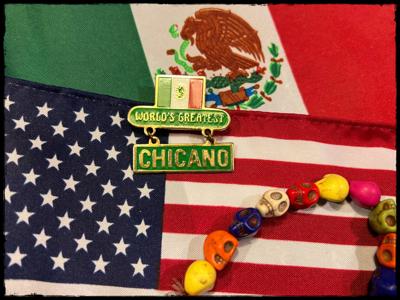
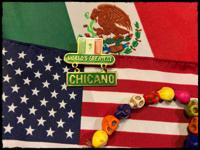

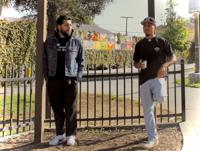

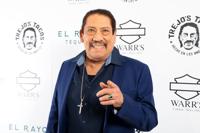

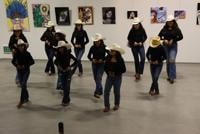


(0) comments
Welcome to the discussion.
Log In
Keep it Clean. Please avoid obscene, vulgar, lewd, racist or sexually-oriented language.
PLEASE TURN OFF YOUR CAPS LOCK.
Don't Threaten. Threats of harming another person will not be tolerated.
Be Truthful. Don't knowingly lie about anyone or anything.
Be Nice. No racism, sexism or any sort of -ism that is degrading to another person.
Be Proactive. Use the 'Report' link on each comment to let us know of abusive posts.
Share with Us. We'd love to hear eyewitness accounts, the history behind an article.